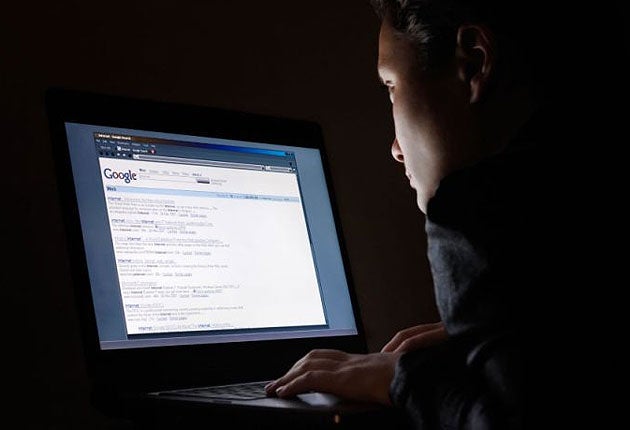Brian Viner: Television, teenagers and pornography
I cannot equate a 1977 Playboy centrefold with what is now online

My 15-year-old daughter Eleanor has just finished her mock GCSEs, and has done pretty well despite my conviction, aired at regular intervals, that she was spending too much time at the computer on social networking sites when she could have been revising. It is eerie to find history repeating itself, to say nothing of chemistry and physics. When I was 15, my mother took the draconian decision to have the television set removed. She asked Mr Williams from No 54 to store it in his garage while I kicked the habit.
Similarly, my wife and I have resolved to stop Eleanor's access to MSN messenger if we feel that her schoolwork is suffering, an exercise much easier than that undertaken by Mr Williams, who reportedly tripped over the front door step in his haste to get the telly out before I got home from school, exuding teenage malevolence.
Nonetheless, these two examples of parental angst, a generation apart, are instructive. As parents in the danger-strewn 21st-century it is important to maintain a sensible perspective, even in the light of a report just published by market research agency ChildWise, which after surveying 1,800 children at 92 schools claims "a major boost to the intensity and the independence with which children approach online activities".
Teenagers have always found ways to worry and alienate their parents, and always will. It is part of their birthright, just as parents are entitled to fret that their children are exposed to more pernicious influences than they were at the same tender age.
The relentless march of technology makes this unequivocally true, of course. My children can access pornographic images without leaving the front room, whereas I had to rely on reliable contacts in the shoplifting business. Just to bring my mother back into this story, incidentally, I vividly recall my horror one day at finding that my secret stash of pornography had disappeared from its impregnable hiding place under my bed, and how horror turned to mortal embarrassment when my mum casually said: "if you're wondering where your girlie magazines are, I've put them with your Look & Learns. That seems to be the category they belong to."
Now, it would be disingenuous of me to equate a 1977 Playboy centrefold with the images that my kids can download, but the point is that I trust them not to, and since trust is one of the most valuable commodities there is in the relationship between parent and child, I'm not going to let go of it without a struggle. Admittedly, it is a struggle intensified by the myriad of online attractions, especially once you add games consoles to the equation. Indeed, this report reckons that children between the ages of five and 16 are spending almost six hours a day peering at screens of some sort, and if that seems decidedly alarmist, I yield to nobody in my dislike of the spectral glow that bathes Eleanor's face late into the evening as she messages the school friends she has spent all day with.
But then 30 years ago precisely the same objection was levelled at teenage girls for spending ages on the phone. As for boys, in 1977 the eminent psychologist William Belson published Television Violence and the Adolescent Boy, a report which suggested that teenagers who watched The Sweeney were 49 per cent more likely to duff someone up. That seems as quaint now as the ChildWise report will be to Eleanor, when she's dealing with my 15-year-old grandchildren.
Join our commenting forum
Join thought-provoking conversations, follow other Independent readers and see their replies
Comments
Bookmark popover
Removed from bookmarks